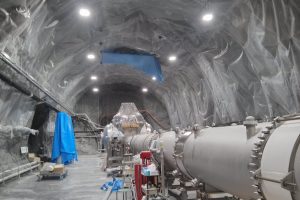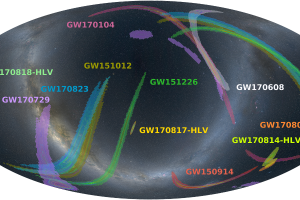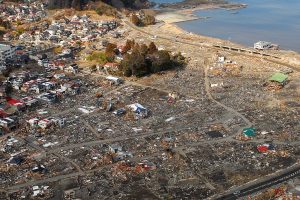
by Eleonora CAPOCASA (National Astronomical Observatory of Japan) Three 2nd generation gravitational-wave detectors (the two LIGO and Virgo) are about to come online again, in an upgraded version, for a new data-taking period. The increased sensitivity of the network is expected to result in a higher rate of detections with louder signals so as to enter a mature phase of […]
» Read more

On Saturday 1st December 2018, scientists attending the Gravitational Wave Physics and Astronomy Workshop in College Park, Maryland, presented new results from searches for coalescing cosmic objects, such as pairs of black holes and pairs of neutron stars, by the LIGO and Virgo detectors. The LIGO and Virgo interferometers have now confidently detected gravitational waves from a total of 10 […]
» Read more
Link : Workshop on geophysics and gravitational-wave detectors From tuesday 17 avril 2012 at 09:30 to wednesday 18 avril 2012 at 18:00 (Europe/Paris) At Institut de Physique du Globe, Paris (France) 1, rue Jussieu 75238 Paris FRANCE ( 108 — 1st floor — Salle du Conseil )
» Read more

RETROSPECTIVE. Correctly predicting the strength of an earthquake takes time, with the risk of underestimating the magnitude of the phenomenon. A new technique, based on changes in the gravitational field during an earthquake, seems promising. It could deliver results in just a few minutes, and could save lives. Earthquakes are the only completely unpredictable natural phenomena on earth. Although unpredictable, […]
» Read more
Here are all the projects currently supported by the LabEx UnivEarthS Frontier projects Frontier projects allow LabEx UnivEarthS teams from one of the founding laboratories to open new research paths. Former Frontier projects Interface projects Interface projects aim to finance the development of interdisciplinary research maily focused on fundamental problems or technological innovation. They are composed of two teams from […]
» Read more



